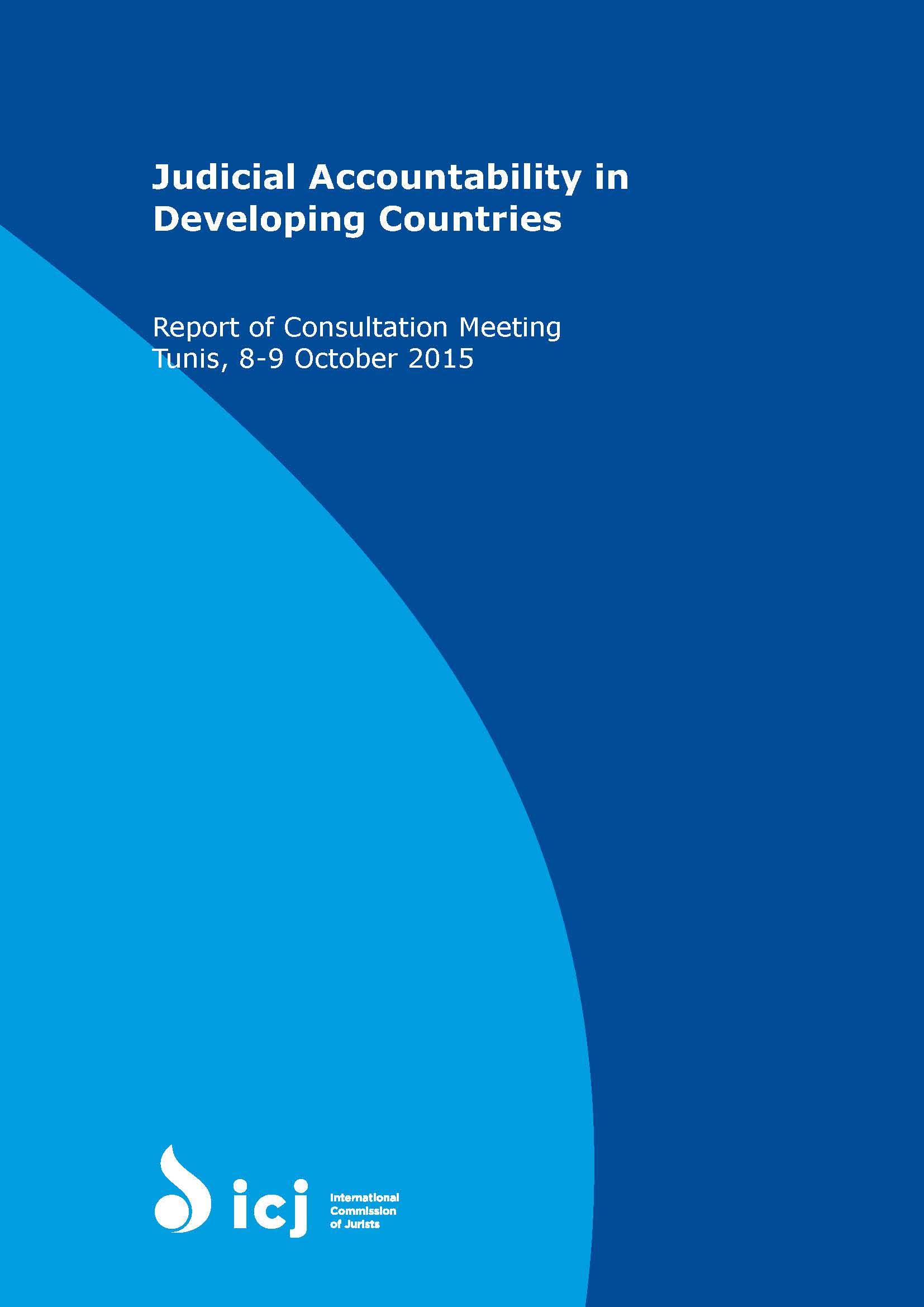On 8 and 9 October 2015, the ICJ held a consultation meeting in Tunis on the topic of judicial accountability. The ICJ today is publishing a summary report of the discussions.
The focus of the meeting was on mechanisms and procedures for holding judges to account for involvement in violations of human rights, judicial corruption or similar judicial misconduct, in developing countries.
The Tunis meeting offered the opportunity for judges, researchers and other professionals with expertise in justice systems in a range of developing countries from Africa, South America and the MENA region, to exchange views and experiences on the topic.
Drawing from their professional experience,knowledge and personal opinion, the participants discussed types of accountability mechanisms, their efficiency, and the main challenges faced in pursuing judicial accountability and potential ways to overcome them in developing countries.
The Tunis consultation forms part of a larger ongoing project on judicial accountability.
The ICJ intends to publish in the coming months a report of further reflections on the particular challenges for judicial accountability in developing countries, as well as a more global Practitioners’ Guide on Judicial Accountability in June 2016.
These publications will draw on the Tunis consultation, the 2015 Geneva Forum of Judges and Lawyers (14-15 December 2015), as well as further research.
This report of the Tunis consultation offers a thematic summary of the discussions held over the course of the two days meeting, and also includes annexes with the list of participants, and questions for reflection, provided to the participants in advance of the meeting.
The ICJ is grateful for funding from the Ministry of Foreign Affairs of Finland, without which the Tunis consultation and additional ICJ consultations, research and analysis on judicial accountability in developing countries would not have been possible.”
Universal-Tunis Consultation-Publications-Seminar and Conference Report-2016-ENG (full report in PDF)

